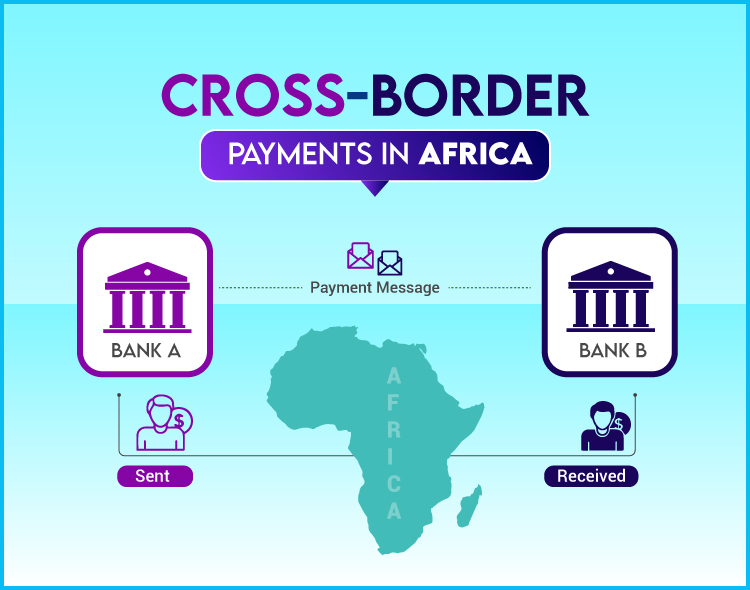In this blog, we shall highlight the CBP for Africa.
A Closer Look at Cross-Border Payments for Bank Transfers in Africa
Compared to Latin America’s around $200 billion, the domestic e-payments business in Africa is projected to witness revenue growth of approximately 20 percent per year, reaching over $40 billion by 2025.
Money transfers between people, businesses, or financial institutions in different countries are known as cross-border payments. In simple terms, when a buyer and seller (payer and payee) are located in different countries, the transaction is considered to be cross-border.
Instead of being a threat to the economy, this would usher in a new era of prosperity by revolutionizing the financial sector and elevating the value of the Fintech Sector. Traditional banking systems or money transfer companies like Western Union and MoneyGram are the primary means by which Africans make cross-border payments.
Slow, expensive, and susceptible to hefty fees and unfavorable currency rates, these methods make it challenging for businesses to develop and take advantage of new opportunities. Different currencies, regulatory frameworks, and technology infrastructures all add layers of complexity to making cross-border payments in Africa. Cross-border payments on the continent have been made more accessible and efficient through these efforts.
Latest Read: Can Fintech Survive Without IT Support? Let’s Know With Experts!
A Guide to Managing Payday Dashboards and Fincra Payments
Payday
The arrival of Payday will streamline international money transfers for Africans.
Payday allows you to quickly and easily set up virtual bank accounts in US Dollars, British Pounds, or Euros, as well as generate virtual credit cards. With this method, you may avoid the high costs associated with traditional bank transfers, making online shopping and money transfers much more convenient.
You may rapidly convert your U.S. Dollars, British Pounds, or Euros to any of the accepted African currencies using Payday’s currency switch.
Read more: Top 10 Fintech CEO Watchlist
Fincra
Fincra is contributing to the resolution of Africa’s cross-border payment problems by providing digital solutions that save the time and money spent by businesses when accepting payments from clients abroad.
Fincra facilitates buttonless transactions by providing access to digital wallets and payment systems.
Fincra allows businesses to receive payments from customers all around the world by setting up Virtual Accounts denominated in USD, EUR, or GDP. With Fincra-issued Virtual Accounts, African merchants may accept payments from customers around the world, no matter where they are located.
Top Challenges of Cross-Border Payments in Africa
- However, cross-border payments have been hampered by factors such as different payment systems, currency volatility, and a lack of access to banking infrastructure.
- Payment processing costs might be considerable if a company has to pay foreign transaction fees or taxes when transferring funds internationally.
- Last but not least, fraud and security issues persist since con artists may easily exploit weak online payment systems.
Read : Global Fintech Fest 2023 – Outcomes
Conclusion
Fintechs and payment companies are addressing these issues by developing innovative payment gateways. Increases in both the availability and efficiency of cross-border payment gateways are a direct result of technological development.
Businesses in Africa may more easily do business with customers all over the world thanks to these gateway technologies that assist and facilitate payments across international borders.
[To share your insights with us, please write to pghosh@itechseries.com ]
